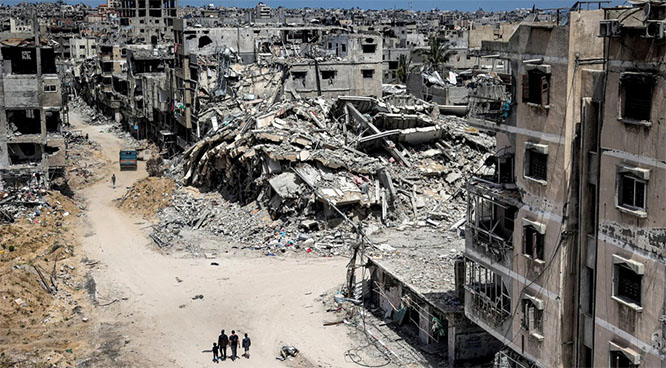Apr 24: Prime Minister Narendra Modi will travel to meet Chinese President Xi Jinping this week, as the world's two most-populous countries seek to reduce tensions after a tense border dispute last year.
The "informal summit" between Xi Jinping and PM Modiwill be held Friday and Saturday in Wuhan, the capital of the central province of Hubei, Chinese Foreign Minister Wang Yi said Sunday at a news conference with India External Affairs Minister Sushma Swaraj.
The meeting is part of an intensifying dialogue between the two leaders whose countries comprise more than one-third of the world's population and 18 percent of global gross domestic product. It comes as both powers seek to reduce risk in their regional environments as China faces down U.S. President Donald Trump's threatened trade actions and PM Modi seeks to keep India's economy on track ahead of the 2019 election.
"It is very rare for two major countries like China and India to meet together so frequently," said Qian Feng, a researcher on international relations with Tsinghua University in Beijing. "For both sides, a peaceful border and a mutually beneficial trading partnership are obviously more in line with their interests. For this reason, the two sides are tacitly recovering bilateral relations rapidly."
Xi and PM Modi met last September and are scheduled to meet again in June for the Shanghai Cooperation Organization meeting in China's eastern port city of Qingdao. Both leaders have strong domestic reasons to put tensions aside.
"For China, the ongoing trade war with the U.S. prompted Beijing to adopt a more sensible attitude towards India," Qian Feng said, adding that PM Modi's economic and social reforms have slowed. "The turbulent global economic situation has increased economic risk in India."
The countries' foreign ministers emphasised the broader strategic context behind the meeting. Xi and PM Modi would have "communications of a strategic nature concerning big changes happening in the world," Mr Wang told reporters in Beijing. "They will also exchange views on overall, long-term and strategic matters concerning the future of China-India relations."
The two sides are setting aside formalities for the meeting in the hope of a breakthrough before border tensions resurface, according to Shailesh Kumar, political risk firm Eurasia Group's Asia director.
"The informal nature and timing of the summit indicates that first, both sides want to be able to discuss all topics in a free and cordial manner without the standard formalities," Kumar said. "Second, they want to meet before the summer, when many worry tensions between both armies in the mountain areas could rise again as the weather is less hostile."
The move toward rapprochement was facilitated by a meeting between Xi and PM Modi last September, when they held their first talks since defusing a border stand-off in remote region between India, Bhutan and China's Tibet region. Ms Swaraj, the Indian foreign minister, described peace and tranquility on the countries' border areas as an "essential prerequisite for the smooth development of bilateral relations."
The summit was good news in the short-term for investors in Asia, Mr Kumar said. "Priorities will be to build deeper ties to mitigate any security related disagreements while also establishing a framework to handle any issues as they arise," he said.
Longer term, though, differences between the two powers are likely to resurface. "Distrust is high and tensions will remain, particularly given China's financial involvement in Pakistan, which India sees as a strategic rather than economic engagement that can hurt India," Mr Kumar said.
Tensions have lingered since China defeated India in a brief border war in 1962. The residence of the Tibetan religious leader, the Dalai Lama, in the mountain town of Dharamsala in Northern India has also long angered Beijing.
They've been exacerbated by Beijing's rapid expansion of its political and economic ties in India's backyard through Xi's ambitious Belt and Road infrastructure initiative. Projects include railway building in Pakistan and port projects in Sri Lanka.
Against that backdrop, former Indian foreign secretary S. Jaishankar told India's Asian News International that the summit was "certainly a very bold step."
"The fact that they have agreed on an informal summit shows that the two leaders realise the importance of this relationship," he said. "They have taken on the responsibility themselves on putting it on a better course."







Comments
Add new comment